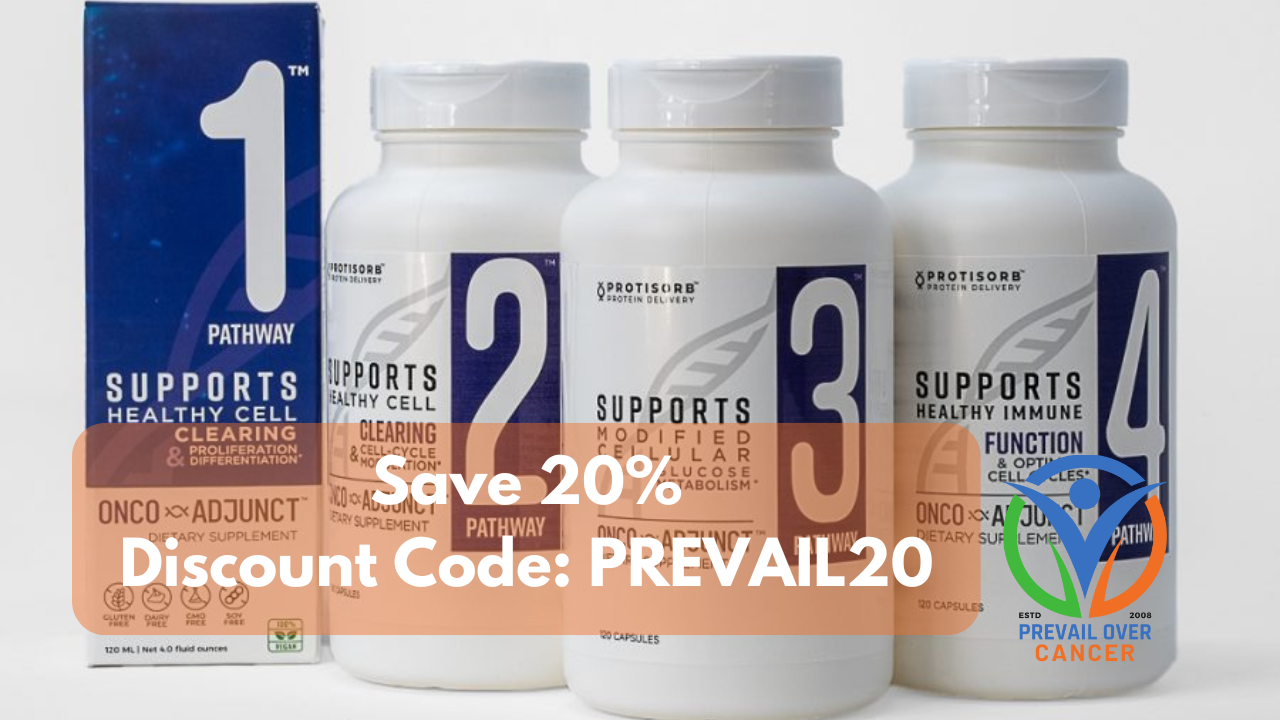L-Glutamine Metabolism in Cancer and How Herbs Can Help

Learn about cancer's use of L-Glutamine and how certain herbs can decrease its availability.
Written by Keith Bishop, Clinical Nutritionist, Cancer Coach, and Retired Pharmacist.
Cancer cells are notorious for their rapid growth and proliferation. They rely heavily on specific nutrients, particularly L-glutamine and glucose, to sustain this. These cells undergo metabolic reprogramming, consuming large amounts of glutamine to produce amino acids, nucleotides, and fatty acids essential for survival and growth.[i] This phenomenon, often referred to as "glutamine addiction," makes glutamine metabolism a critical target for cancer therapy.[ii]
Researchers are exploring various strategies to exploit this dependency. By targeting glutamine transporters and enzymes involved in its metabolism, they aim to disrupt the supply of this vital nutrient to cancer cells, thereby inhibiting their growth and inducing cell death.[iii] This approach holds promise for developing new cancer treatments that can effectively starve cancer cells without harming normal cells.
Inhibiting glutamine metabolism can enhance the effectiveness of certain chemotherapy drugs, such as cisplatin, in cancer cells[iv] and radiation therapy.[v]
Herbs That Decrease Glutamine Metabolism and Absorption
Several herbs and natural compounds have shown potential in decreasing glutamine metabolism, making them valuable allies in the fight against cancer. Here are some notable ones:
- EGCG (Epigallocatechin Gallate): Found in green tea, EGCG can inhibit glutamate dehydrogenase, an enzyme involved in glutamine metabolism.[vi] This inhibition can reduce glutamine availability for cancer cells, slowing their growth.
- Quercetin: This flavonoid in many fruits and vegetables also inhibits glutamate dehydrogenase.[vii] Thus, quercetin can help limit the glutamine supply to cancer cells.
- Curcumin: The active compound in turmeric curcumin can block the attachment of glutamine to cancer cells.[viii] Curcumin also decreases glutamine metabolism in cancer cells.[ix] This blockage and metabolism can prevent cancer cells from utilizing glutamine, inhibiting their proliferation.
- Berberine: Found in several plants like goldenseal, berberine can block glutamine transport into cancer cells[x] and the cell’s ability to use l-glutamine[xi]. These actions can effectively starve cancer cells of the glutamine they need to grow.
- Resveratrol: Present in grapes and berries, it can affect glutamine absorption and metabolism in cancer cells[xii]. By altering glutamine absorption and metabolism, resveratrol can help reduce the availability of this nutrient to cancer cells.
- Bay Leaf: Contain flavonol monoglycosides that decrease the body’s ability to make energy and grow from L-glutamine. The Bay Leaf glutamine effect is comparable to the drug DON[xiii]. That’s impressive and noteworthy. It may be a good idea to use Bay Leaf in food as much as possible and capsules before meals to help starve cancer cells.

Learn How to Select a Quality Dietary Supplement
How to Consume These Herbs to Decrease L-Glutamine Availability
The only herb food that we can get enough from food to have an impact is green tea. Consuming a strong cup of green tea or, even better, matcha before a meal will decrease the availability of l-glutamine. I use loose-leaf green tea to ensure I’m not ingesting microplastics from tea bags.
Most quercetin, curcumin, berberine, and resveratrol supplements are not well absorbed. I choose the better-absorbed Onco-Adjunct Pathway 2, 3, and 4 about 15-minutes before meals with protein to reduce the absorption and use of l-glutamine.
Most polyphenols in herbs are not well absorbed. I choose UltraBotanica's Onco-Adjunct Pathway herbal supplements because they use the patented ProtiSorb technology. I can tell the difference when I take these supplements.
Herbs for Glutamine and Cancer Conclusion
Targeting glutamine metabolism is a promising strategy in cancer therapy. We can develop more effective treatments by understanding how cancer cells utilize glutamine and exploring natural compounds that can disrupt this process. Herbs like EGCG, quercetin, curcumin, berberine, and resveratrol offer potential benefits in this regard. However, it's essential to consult with healthcare professionals before incorporating these herbs into any treatment plan.
*These statements have not been evaluated by the Food and Drug Administration. These products are not intended to diagnose, treat, cure, or prevent any disease.
Reference Sources
[i] Wang, B., Pei, J., Xu, S. et al. A glutamine tug-of-war between cancer and immune cells: recent advances in unraveling the ongoing battle. J Exp Clin Cancer Res 43, 74 (2024). https://doi.org/10.1186/s13046-024-02994-0
[ii] Targeting glutamine metabolism as a therapeutic strategy for cancer. https://www.nature.com/articles/s12276-023-00971-9.pdf
[iii] Li, X., Peng, X., Li, Y. et al. Glutamine addiction in tumor cell: oncogene regulation and clinical treatment. Cell Commun Signal 22, 12 (2024). https://doi.org/10.1186/s12964-023-01449-x
[iv] Liu Z, Peng Q, Li Y, Gao Y. Resveratrol enhances cisplatin-induced apoptosis in human hepatoma cells via glutamine metabolism inhibition. BMB Rep. 2018;51(9):474-479. doi:10.5483/BMBRep.2018.51.9.114 https://www.ncbi.nlm.nih.gov/pmc/articles/PMC6177506/
[v] Peeters TH, Lenting K, Breukels V, et al. Isocitrate dehydrogenase 1-mutated cancers are sensitive to the green tea polyphenol epigallocatechin-3-gallate. Cancer Metab. 2019;7:4. Published 2019 May 20. doi:10.1186/s40170-019-0198-7 https://www.ncbi.nlm.nih.gov/pmc/articles/PMC6526618/
[vi] Pournourmohammadi S, Grimaldi M, Stridh MH, et al. Epigallocatechin-3-gallate (EGCG) activates AMPK through the inhibition of glutamate dehydrogenase in muscle and pancreatic ß-cells: A potential beneficial effect in the pre-diabetic state?. Int J Biochem Cell Biol. 2017;88:220-225. doi:10.1016/j.biocel.2017.01.012 https://www.sciencedirect.com/science/article/abs/pii/S1357272517300195?via%3Dihub
[vii] Marsico M, Santarsiero A, Pappalardo I, et al. Mitochondria-Mediated Apoptosis of HCC Cells Triggered by Knockdown of Glutamate Dehydrogenase 1: Perspective for Its Inhibition through Quercetin and Permethylated Anigopreissin A. Biomedicines. 2021;9(11):1664. Published 2021 Nov 11. doi:10.3390/biomedicines9111664 https://www.ncbi.nlm.nih.gov/pmc/articles/PMC8615521/
[viii] Thongpon P, Intuyod K, Chomwong S, et al. Curcumin synergistically enhances the efficacy of gemcitabine against gemcitabine-resistant cholangiocarcinoma via the targeting LAT2/glutamine pathway. Sci Rep. 2024;14(1):16059. Published 2024 Jul 11. doi:10.1038/s41598-024-66945-7 https://www.ncbi.nlm.nih.gov/pmc/articles/PMC11239878/
[ix] Fan WH, Wang FC, Jin Z, Zhu L, Zhang JX. Curcumin Synergizes with Cisplatin to Inhibit Colon Cancer through Targeting the MicroRNA-137-Glutaminase Axis. Curr Med Sci. 2022;42(1):108-117. doi:10.1007/s11596-021-2469-0 https://link.springer.com/article/10.1007/s11596-021-2469-0
[x] Zhang P, Wang Q, Lin Z, Yang P, Dou K, Zhang R. Berberine Inhibits Growth of Liver Cancer Cells by Suppressing Glutamine Uptake. Onco Targets Ther. 2019;12:11751-11763. Published 2019 Dec 31. doi:10.2147/OTT.S235667 https://www.ncbi.nlm.nih.gov/pmc/articles/PMC6978679/
[xi] Zhang K, Zhu J, Wang R, et al. Mitochondria-anchoring self-assembled nanoparticles for multi-path energy depletion: A "nano bomb" in chemo-co-starvation therapy. Int J Pharm. 2023;642:123180. doi:10.1016/j.ijpharm.2023.123180 https://www.sciencedirect.com/science/article/abs/pii/S0378517323006002?via%3Dihub
[xii] Liu Z, Peng Q, Li Y, Gao Y. Resveratrol enhances cisplatin-induced apoptosis in human hepatoma cells via glutamine metabolism inhibition. BMB Rep. 2018;51(9):474-479. doi:10.5483/BMBRep.2018.51.9.114 https://www.ncbi.nlm.nih.gov/pmc/articles/PMC6177506/
[xiiii] Shimada A, Ueno H, Kawabata K, Inagaki M. GABase and glutaminase inhibitory activities of herbal extracts and acylated flavonol monoglycosides isolated from the leaves of Laurus nobilis L.. Zeitschrift für Naturforschung C, A journal of biosciences. 2023;78(9-10):377-381. doi: https://doi.org/10.1515/znc-2023-0047





